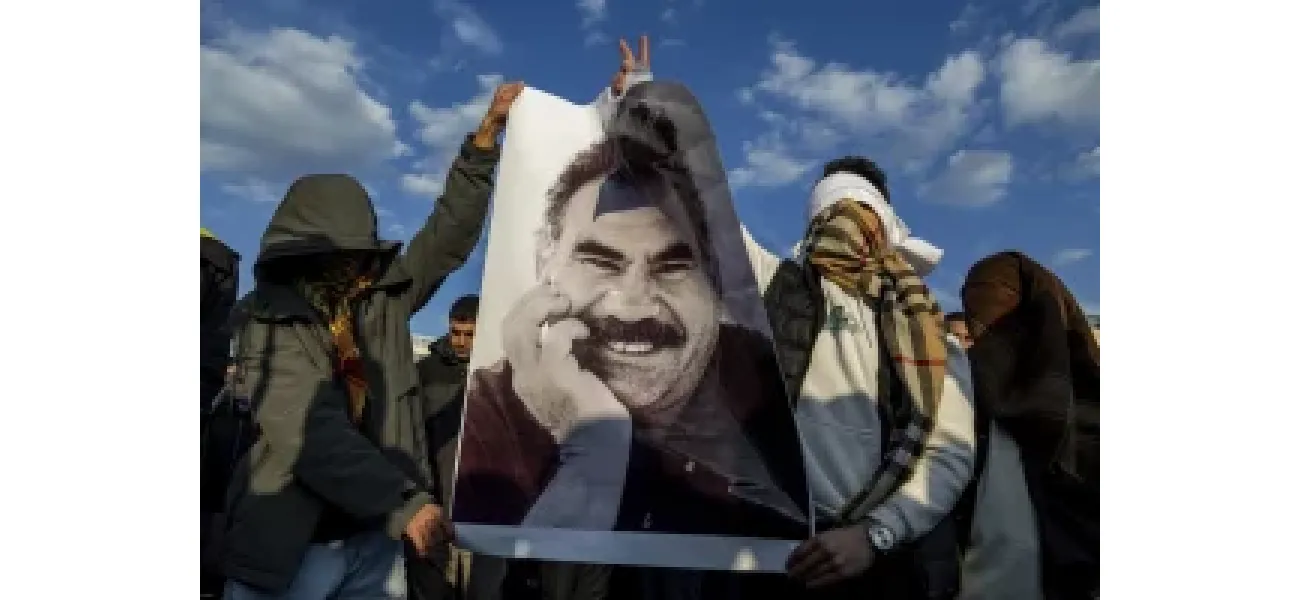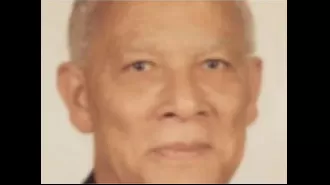Kurdish rebels in Turkiye announce end to 40-year rebellion, agreeing to a ceasefire.
Kurdish militants in Turkiye have declared a ceasefire, potentially aiding President Erdogan's government after their imprisoned leader's call for disarmament.
March 1st 2025.

The ongoing conflict between Turkiye and Kurdish militants, who have been fighting for over 40 years, took a surprising turn on Saturday when the group declared a ceasefire. This could potentially be a major win for President Recep Tayyip Erdogan's government, especially coming just two days after their imprisoned leader, Abdullah Ocalan, called for the group to lay down their arms.
The announcement by the Kurdistan Workers' Party, or PKK, is significant given the current landscape of the region. With power dynamics shifting in neighboring countries like Syria and Lebanon, and the recent war between Israel and Hamas in Gaza, this ceasefire could signal a turning point in the long-standing conflict between Turkiye and the PKK. This conflict has resulted in tens of thousands of deaths since it began in 1984, making this ceasefire a promising development.
The PKK's declaration was published by Firat News Agency, a media outlet closely associated with the group. In the statement, they referenced Ocalan's call for peace and a democratic society, using his nickname "Apo." The PKK declared that they would not engage in any armed actions unless provoked, in accordance with Ocalan's call.
This ceasefire comes on the heels of intense pressure on Kurdish politicians, including the removal of several mayors and their replacement by government appointees. On Thursday, a delegation of Kurdish politicians visited Ocalan in his imprisonment on an island in the Marmara Sea and announced his call for the PKK to disarm. The PKK's executive committee's statement emphasized the significance of Ocalan's message, stating that a "new historical process" has begun in Kurdistan and the Middle East.
While the PKK has agreed to comply with Ocalan's call for peace, they also stressed the importance of democratic politics and legal grounds in achieving success. They also appealed for Ocalan's release from prison to lead a party congress that would ultimately result in the disarmament of the militants.
This peace initiative was initially proposed in October by Erdogan's coalition partner, Devlet Bahceli, a far-right politician. Bahceli suggested that Ocalan could be granted parole if the PKK renounces violence and disbands. Erdogan himself has called Ocalan's message a "new phase" in peace efforts in Turkiye, expressing hope for a resolution to the conflict that has torn apart the country for decades.
Vice President Cevdet Yilmaz was the first government official to respond to the ceasefire, stating that it marks a new phase towards a "terror-free Turkiye." He also expressed hope that this opportunity will be seized and the effort will be concluded successfully.
Some speculate that the true purpose of this reconciliation effort is to gain Kurdish support for a new constitution that would allow Erdogan to remain in power beyond his current term, which ends in 2028. Bahceli has openly called for a new constitution, and it is believed that Erdogan and Bahceli are seeking support from the pro-Kurdish People's Equality and Democracy Party.
One of the members of this party, Sirri Sureyya Onder, who visited Ocalan in prison on Thursday, stated that there will be a series of meetings in the upcoming week, including state officials and politicians. He expressed hope that things will become clearer and more concrete within the next three months.
Despite being imprisoned for 25 years, Ocalan still holds significant influence in the Kurdish movement. In Syria, Kurdish fighters, who have ties to the PKK, have been engaged in intense battles with Turkish-backed forces. The leader of the US-backed, Kurdish-led Syrian Democratic Forces has stated that Ocalan's call for a ceasefire does not apply to their group in Syria. However, the Turkish government maintains that all Kurdish groups connected to the PKK, whether in Turkiye, Syria, or Iraq, must disband.
In recent years, the PKK has been limited to isolated attacks within Turkiye as the Turkish military, equipped with armed drones, has pushed them further into the mountains on the Iraqi border. This ceasefire offers a glimmer of hope for a resolution to the long-standing conflict between Turkiye and the PKK, and the possibility of a peaceful future for the region.
The announcement by the Kurdistan Workers' Party, or PKK, is significant given the current landscape of the region. With power dynamics shifting in neighboring countries like Syria and Lebanon, and the recent war between Israel and Hamas in Gaza, this ceasefire could signal a turning point in the long-standing conflict between Turkiye and the PKK. This conflict has resulted in tens of thousands of deaths since it began in 1984, making this ceasefire a promising development.
The PKK's declaration was published by Firat News Agency, a media outlet closely associated with the group. In the statement, they referenced Ocalan's call for peace and a democratic society, using his nickname "Apo." The PKK declared that they would not engage in any armed actions unless provoked, in accordance with Ocalan's call.
This ceasefire comes on the heels of intense pressure on Kurdish politicians, including the removal of several mayors and their replacement by government appointees. On Thursday, a delegation of Kurdish politicians visited Ocalan in his imprisonment on an island in the Marmara Sea and announced his call for the PKK to disarm. The PKK's executive committee's statement emphasized the significance of Ocalan's message, stating that a "new historical process" has begun in Kurdistan and the Middle East.
While the PKK has agreed to comply with Ocalan's call for peace, they also stressed the importance of democratic politics and legal grounds in achieving success. They also appealed for Ocalan's release from prison to lead a party congress that would ultimately result in the disarmament of the militants.
This peace initiative was initially proposed in October by Erdogan's coalition partner, Devlet Bahceli, a far-right politician. Bahceli suggested that Ocalan could be granted parole if the PKK renounces violence and disbands. Erdogan himself has called Ocalan's message a "new phase" in peace efforts in Turkiye, expressing hope for a resolution to the conflict that has torn apart the country for decades.
Vice President Cevdet Yilmaz was the first government official to respond to the ceasefire, stating that it marks a new phase towards a "terror-free Turkiye." He also expressed hope that this opportunity will be seized and the effort will be concluded successfully.
Some speculate that the true purpose of this reconciliation effort is to gain Kurdish support for a new constitution that would allow Erdogan to remain in power beyond his current term, which ends in 2028. Bahceli has openly called for a new constitution, and it is believed that Erdogan and Bahceli are seeking support from the pro-Kurdish People's Equality and Democracy Party.
One of the members of this party, Sirri Sureyya Onder, who visited Ocalan in prison on Thursday, stated that there will be a series of meetings in the upcoming week, including state officials and politicians. He expressed hope that things will become clearer and more concrete within the next three months.
Despite being imprisoned for 25 years, Ocalan still holds significant influence in the Kurdish movement. In Syria, Kurdish fighters, who have ties to the PKK, have been engaged in intense battles with Turkish-backed forces. The leader of the US-backed, Kurdish-led Syrian Democratic Forces has stated that Ocalan's call for a ceasefire does not apply to their group in Syria. However, the Turkish government maintains that all Kurdish groups connected to the PKK, whether in Turkiye, Syria, or Iraq, must disband.
In recent years, the PKK has been limited to isolated attacks within Turkiye as the Turkish military, equipped with armed drones, has pushed them further into the mountains on the Iraqi border. This ceasefire offers a glimmer of hope for a resolution to the long-standing conflict between Turkiye and the PKK, and the possibility of a peaceful future for the region.
[This article has been trending online recently and has been generated with AI. Your feed is customized.]
[Generative AI is experimental.]
0
0
Submit Comment





